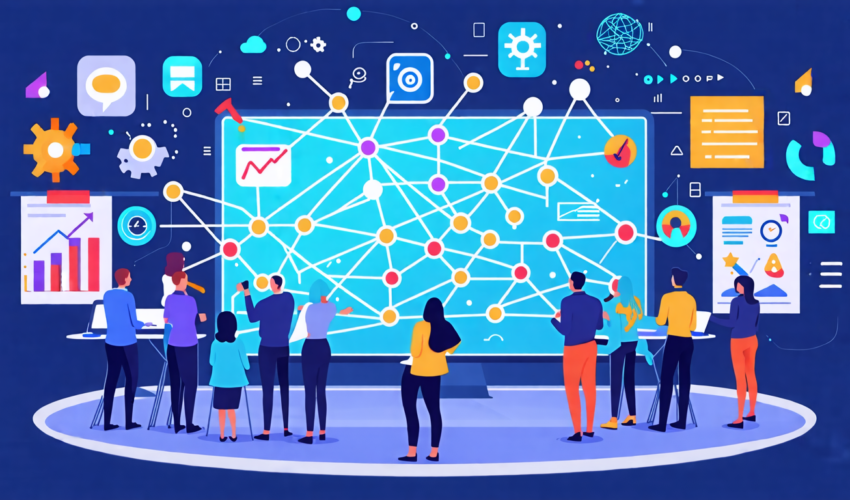In the ever-evolving landscape of personal and professional development, understanding your experience level is a pivotal aspect that can significantly influence your growth trajectory. Experience level refers to the depth of knowledge, skills, and competencies that an individual holds in a particular field, serving as a benchmark for their capabilities and potential. This understanding is not just a matter of self-reflection but a crucial tool for setting realistic goals and paving the way for career advancements and personal growth. By accurately identifying your experience level, you can align yourself with opportunities that best match your skills and aspirations, thereby enhancing job satisfaction and ensuring a fulfilling career path.
Determining your experience level is a multifaceted process that begins with self-assessment techniques. Reflective assessment allows you to delve into your past experiences and achievements, offering insights into your current standing. Creating a skill inventory and evaluating these skills against industry standards is another effective method to ascertain where you stand professionally. Moreover, seeking feedback and mentorship from peers, industry professionals, and mentors can provide valuable external perspectives, helping you identify areas of strength and opportunities for improvement.
Once you have a clear understanding of your experience level, the journey of enhancing it unfolds through various strategic actions. Engaging in continuous learning by enrolling in additional training, workshops, and educational courses can significantly upgrade your knowledge and skill set. Practical experience gained through volunteering and internships can offer invaluable hands-on experience, further enriching your experience level. Additionally, actively participating in networking, attending industry conferences, and joining professional associations can broaden your experiences, opening new doors for professional development and advancement.
By investing time in understanding and enhancing your experience level, you empower yourself to navigate the professional world with confidence, embracing opportunities that align with your aspirations while pushing the boundaries of your potential.
Understanding the Importance of Experience Levels
Definition of Experience Level: The concept of experience level refers to the depth and breadth of knowledge, skills, and expertise an individual has accumulated over time in a specific field. It encompasses everything from novice, where basic understanding is just developing, to expert, where mastery of the subject is evident. Recognizing your experience level is crucial because it offers a clear benchmark for both personal and professional growth. It helps individuals understand where they currently stand in their journey and what needs to be achieved to reach their aspirations.
Experience levels are not static; they evolve with time and through various learning opportunities. Knowing your current standing allows for targeted progression and effective planning. It’s about understanding your starting point and mapping out a pathway that suits your career aspirations, thus enabling you to make informed decisions about future directions.
Impact on Career and Personal Development: Identifying your experience level is integral when setting realistic goals. It serves as a foundation for self-improvement by helping you to pinpoint strengths and areas for development. In a professional context, knowing your experience level facilitates advancement by allowing you to tailor your professional development plans more effectively.
For example, someone at a mid-level of experience may aspire for leadership roles but needs to identify where they need to grow—be it in acquiring specific leadership skills, gaining more technical knowledge, or building a wider network. By recognizing where you are and where you need to be, you can effectively align your skills with career milestones, ensuring that every step taken is a constructive one toward achieving your objectives.
On a personal level, understanding your experience level enhances self-awareness and can improve confidence as you achieve set goals. It gives you clarity about what motivates you and what you enjoy doing, leading to greater satisfaction and fulfillment in your professional life.
Experience Level and Opportunities: Knowing your experience level can significantly open up relevant opportunities and assist in job matching. In today’s competitive job market, employers are constantly seeking individuals who not only fit the qualifications but whose experience level aligns with the job role requirements. Accurately assessing and communicating your experience level on your resume or during interviews can therefore be a game-changer.
Moreover, recognizing your experience level informs your job search strategy. It ensures that you are applying for positions that truly match your capabilities and growth potential. For entry-level professionals, it might mean seeking roles that offer robust training and development, while seasoned professionals might look for positions that challenge them and offer a platform to employ their expertise in innovative ways.
Furthermore, being aware of your experience level helps in networking and discussions with industry peers. It provides you with an understanding of where you fit within the industry landscape and what conversations or opportunities are most valuable to pursue. Whether you’re in a job interview, at an industry event, or negotiating with stakeholders, having a clear picture of your own experience level empowers you to navigate these situations with confidence and authority.
Ultimately, understanding the concept and relevance of experience level is essential not only for your growth but also for effectively leveraging your talents and seizing the right opportunities at the right moments. It prepares you to step confidently into roles that not only match your current abilities but also stretch them, leading to continuous growth and achievement of professional milestones.

Self-Assessment Techniques to Determine Your Experience Level
Reflective Assessment
Identifying your experience level begins with introspection. Reflective assessment involves looking back at your previous experiences, roles, and accomplishments to honestly evaluate your capabilities and achievements. This process is not only about listing your past jobs or tasks but also involves understanding how these experiences have shaped your skills, work ethic, and professional demeanor. Start by creating a detailed timeline of your career or personal milestones, noting any significant achievements or challenges you’ve faced. Ask yourself probing questions: What have you learned from these experiences? How have you grown or improved? This reflection can reveal patterns that indicate your strengths, weaknesses, and areas ripe for development, helping you to gauge your experience level accurately.
Skill Inventory and Evaluation
Another effective way to determine your experience level is by creating a comprehensive inventory of your skills. Begin by listing out all your competencies, from technical abilities specific to your field to soft skills like communication and leadership. Once you have your list, evaluate each skill against industry benchmarks or standards. Doing so helps you understand how you stack up in the broader landscape of your profession. Consider using self-assessment tools or frameworks like the Skills Matrix, which can provide a structured approach to skill evaluation. This kind of analysis not only highlights your current level of expertise but also illuminates potential areas for growth and improvement.
Seeking Feedback and Mentorship
No self-assessment is complete without external validation. Feedback from peers, supervisors, mentors, and industry professionals offers crucial perspectives that can uncover blind spots in your self-evaluation. Engage in regular feedback sessions where you invite constructive criticism and suggestions on your performance and skillset. Additionally, establishing relationships with mentors can provide insight and advice from experienced professionals who understand the nuances of your industry. Mentors can act as sounding boards for your career plans, helping you to interpret feedback and set realistic goals. This feedback loop is instrumental in ensuring your self-assessment process reflects a true picture of your experience level, equipping you with the insights needed to navigate your career trajectory effectively.

To enhance your experience level, embracing strategies that foster continuous growth and skill enhancement is essential. This section delves into the various methods that contribute to advancing your experience level, including continuous learning, gaining practical experience, and leveraging networking opportunities for professional development.
Continuous Learning and Education
One of the most effective ways to enhance your experience level is through continuous learning and education. Engaging in additional training, workshops, and courses allows you to acquire new skills and knowledge that are critical in staying competitive and advancing in your field. By investing in education, you not only update your skillset but also increase your confidence and competence in handling more complex tasks and roles.
Consider enrolling in certification programs or online courses that are relevant to your career. These programs provide specialized knowledge and often come with recognition from industry leaders, which can significantly impact your experience level positively. Additionally, attending workshops can provide hands-on experience and exposure to real-world applications of theoretical concepts.
Practical Experience and Volunteering
While theoretical knowledge is vital, practical experience is invaluable in elevating your experience level. Engaging in internships, volunteering, or part-time roles can provide the hands-on experience necessary to deepen your understanding of your chosen field. These opportunities allow you to apply your learnings in real-world scenarios, thereby strengthening your practical skills and understanding.
Volunteering, in particular, offers a dual benefit; it allows you to gain experience while making a positive impact in your community or industry. Look for volunteer roles in organizations that align with your career goals or offer challenges that help you grow. Whether it’s a brief project or an ongoing commitment, volunteering can provide unique experiences that set you apart in your career pursuits.
Networking and Professional Development
Networking is a pivotal component of career growth and plays a significant role in enhancing your experience level. Building a professional network opens doors to mentorship, collaboration opportunities, and potential job offers that align with your increased experience-level requirements. It is through these connections that you can learn about industry trends, share knowledge, and acquire valuable insights that can aid in your professional development.
Attend industry conferences and seminars to meet and learn from industry leaders and peers. These events are excellent platforms for acquiring new knowledge, exploring the latest industry innovations, and expanding your network. Joining professional associations also boosts your professional credibility and gives you access to resources and events that can further your career.
Regularly engaging with your network by participating in discussions, attending meet-ups, and maintaining professional relationships can continually motivate you to keep improving your experience level. Furthermore, online platforms such as LinkedIn offer opportunities to connect with professionals worldwide, allowing you to expand your reach and learn from a diverse group of experts.
In conclusion, enhancing your experience level through continuous learning, practical experience, and networking is a multifaceted approach to personal and professional growth. By strategically employing these strategies, you position yourself to not only keep pace with industry demands but also to capitalize on opportunities for advancement and success.
In conclusion, understanding and accurately assessing your experience level is a pivotal step on the path to both personal and professional growth. Recognizing your experience level not only helps in setting achievable and realistic goals but also enhances your career development by aligning your skills with suitable opportunities. Through reflective self-assessment, creating a comprehensive skill inventory, and engaging with mentors and peers, you can effectively gauge where you stand in your journey. Moreover, embracing continuous learning, seeking practical experiences, and actively participating in networking opportunities are powerful strategies to elevate your experience level. By committing to these practices, you open the door to greater opportunities, enrich your knowledge base, and lay a strong foundation for future advancements and success in your chosen field.

